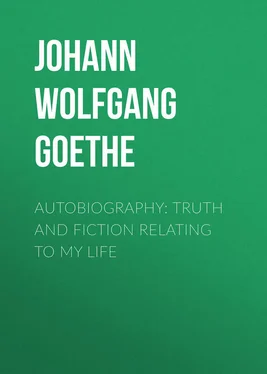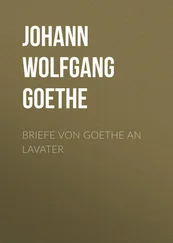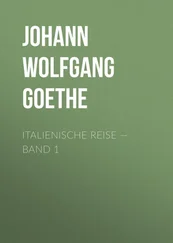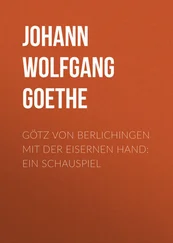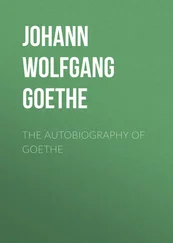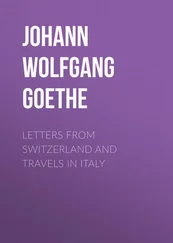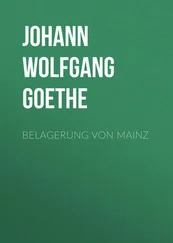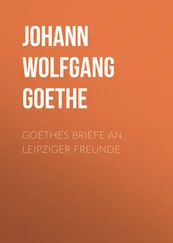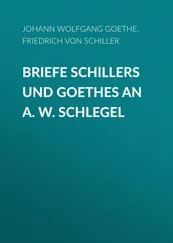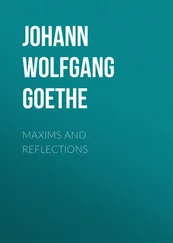Johann von Goethe - Autobiography - Truth and Fiction Relating to My Life
Здесь есть возможность читать онлайн «Johann von Goethe - Autobiography - Truth and Fiction Relating to My Life» — ознакомительный отрывок электронной книги совершенно бесплатно, а после прочтения отрывка купить полную версию. В некоторых случаях можно слушать аудио, скачать через торрент в формате fb2 и присутствует краткое содержание. Жанр: foreign_antique, foreign_prose, на английском языке. Описание произведения, (предисловие) а так же отзывы посетителей доступны на портале библиотеки ЛибКат.
- Название:Autobiography: Truth and Fiction Relating to My Life
- Автор:
- Жанр:
- Год:неизвестен
- ISBN:нет данных
- Рейтинг книги:5 / 5. Голосов: 1
-
Избранное:Добавить в избранное
- Отзывы:
-
Ваша оценка:
- 100
- 1
- 2
- 3
- 4
- 5
Autobiography: Truth and Fiction Relating to My Life: краткое содержание, описание и аннотация
Предлагаем к чтению аннотацию, описание, краткое содержание или предисловие (зависит от того, что написал сам автор книги «Autobiography: Truth and Fiction Relating to My Life»). Если вы не нашли необходимую информацию о книге — напишите в комментариях, мы постараемся отыскать её.
Autobiography: Truth and Fiction Relating to My Life — читать онлайн ознакомительный отрывок
Ниже представлен текст книги, разбитый по страницам. Система сохранения места последней прочитанной страницы, позволяет с удобством читать онлайн бесплатно книгу «Autobiography: Truth and Fiction Relating to My Life», без необходимости каждый раз заново искать на чём Вы остановились. Поставьте закладку, и сможете в любой момент перейти на страницу, на которой закончили чтение.
Интервал:
Закладка:
Johann Wolfgang von Goethe
Autobiography: Truth and Fiction Relating to My Life
INTRODUCTION
It would appear that for inquirers into Foreign Literature, for all men anxious to see and understand the European world as it lies around them, a great problem is presented in this Goethe; a singular, highly significant phenomenon, and now also means more or less complete for ascertaining its significance. A man of wonderful, nay, unexampled reputation and intellectual influence among forty millions of reflective, serious and cultivated men, invites us to study him; and to determine for ourselves, whether and how far such influence has been salutary, such reputation merited. That this call will one day be answered, that Goethe will be seen and judged of in his real character among us, appears certain enough. His name, long familiar everywhere, has now awakened the attention of critics in all European countries to his works: he is studied wherever true study exists: eagerly studied even in France; nay, some considerable knowledge of his nature and spiritual importance seems already to prevail there. 1 1 Witness /Le Tasse, Drame par Duval,/ and the Criticisms on it. See also the Essays in the /Globe,/ Nos. 55, 64 (1826).
For ourselves, meanwhile, in giving all due weight to so curious an exhibition of opinion, it is doubtless our part, at the same time, to beware that we do not give it too much. This universal sentiment of admiration is wonderful, is interesting enough; but it must not lead us astray. We English stand as yet without the sphere of it; neither will we plunge blindly in, but enter considerately, or, if we see good, keep aloof from it altogether. Fame, we may understand, is no sure test of merit, but only a probability of such; it is an accident, not a property, of a man; like light, it can give little or nothing, but at most may show what is given; often it is but a false glare, dazzling the eyes of the vulgar, lending by casual extrinsic splendour the brightness and manifold glance of the diamond to pebbles of no value. A man is in all cases simply the man, of the same intrinsic worth and weakness, whether his worth and weakness lie hidden in the depths of his own consciousness, or be betrumpeted and beshouted from end to end of the habitable globe. These are plain truths, which no one should lose sight of; though, whether in love or in anger, for praise or for condemnation, most of us are too apt to forget them. But least of all can it become the critic to 'follow a multitude to do evil' even when that evil is excess of admiration; on the contrary, it will behoove him to lift up his voice, how feeble soever, how unheeded soever, against the common delusion; from which, if he can save, or help to save any mortal, his endeavours will have been repaid.
With these things in some measure before us, we must remind our readers of another influence at work in this affair, and one acting, as we think, in the contrary direction. That pitiful enough desire for 'originality' which lurks and acts in all minds, will rather, we imagine, lead the critic of Foreign Literature to adopt the negative than the affirmative with regard to Goethe. If a writer indeed feel that he is writing for England alone, invisibly and inaudibly to the rest of the Earth, the temptations may be pretty equally balanced; if he write for some small conclave, which he mistakenly thinks the representative of England, they may sway this way or that, as it chances. But writing in such isolated spirit is no longer possible. Traffic, with its swift ships, is uniting all nations into one; Europe at large is becoming more and more one public; and in this public, the voices for Goethe, compared with those against him, are in the proportion, as we reckon them, both as to the number and value, of perhaps a hundred to one. We take in, not Germany alone, but France and Italy; not the Schlegels and Schellings, but the Manzonis and De Staels. The bias of originality, therefore, may lie to the side of censure; and whoever among us shall step forward, with such knowledge as our common critics have of Goethe, to enlighten the European public, by contradiction in this matter, displays a heroism, which, in estimating his other merits, ought nowise to be forgotten.
Our own view of the case coincides, we confess, in some degree with that of the majority. We reckon that Goethe's fame has, to a considerable extent, been deserved; that his influence has been of high benefit to his own country; nay more, that it promises to be of benefit to us, and to all other nations. The essential grounds of this opinion, which to explain minutely were a long, indeed boundless task, we may state without many words. We find, then, in Goethe, an Artist, in the high and ancient meaning of that term; in the meaning which it may have borne long ago among the masters of Italian painting, and the fathers of Poetry in England; we say that we trace in the creations of this man, belonging in every sense to our own time, some touches of that old, divine spirit, which had long passed away from among us, nay which, as has often been laboriously demonstrated, was not to return to this world any more.
Or perhaps we come nearer our meaning, if we say that in Goethe we discover by far the most striking instance, in our time, of a writer who is, in strict speech, what Philosophy can call a Man. He is neither noble nor plebeian, neither liberal nor servile, nor infidel nor devotee; but the best excellence of all these, joined in pure union; 'a clear and universal Man.' Goethe's poetry is no separate faculty, no mental handicraft; but the voice of the whole harmonious manhood: nay it is the very harmony, the living and life-giving harmony of that rich manhood which forms his poetry. All good men may be called poets in act, or in word; all good poets are so in both. But Goethe besides appears to us as a person of that deep endowment, and gifted vision, of that experience also and sympathy in the ways of all men, which qualify him to stand forth, not only as the literary ornament, but in many respects too as the Teacher and exemplar of his age. For, to say nothing of his natural gifts, he has cultivated himself and his art, he has studied how to live and to write, with a fidelity, an unwearied earnestness, of which there is no other living instance; of which, among British poets especially, Wordsworth alone offers any resemblance. And this in our view is the result. To our minds, in these soft, melodious imaginations of his, there is embodied the Wisdom which is proper to this time; the beautiful, the religious Wisdom, which may still, with something of its old impressiveness, speak to the whole soul; still, in these hard, unbelieving utilitarian days, reveal to us glimpses of the Unseen but not unreal World, that so the Actual and the Ideal may again meet together, and clear Knowledge be again wedded to Religion, in the life and business of men.
Such is our conviction or persuasion with regard to the poetry of Goethe. Could we demonstrate this opinion to be true, could we even exhibit it with that degree of clearness and consistency which it has attained in our own thoughts, Goethe were, on our part, sufficiently recommended to the best attention of all thinking men. But, unhappily, it is not a subject susceptible of demonstration: the merits and characteristics of a Poet are not to be set forth by logic; but to be gathered by personal, and as in this case it must be, by deep and careful inspection of his works. Nay Goethe's world is everyway so different from ours; it costs us such effort, we have so much to remember, and so much to forget, before we can transfer ourselves in any measure into his peculiar point of vision, that a right study of him, for an Englishman, even of ingenuous, open, inquisitive mind, becomes unusually difficult; for a fixed, decided, contemptuous Englishman, next to impossible.
Читать дальшеИнтервал:
Закладка:
Похожие книги на «Autobiography: Truth and Fiction Relating to My Life»
Представляем Вашему вниманию похожие книги на «Autobiography: Truth and Fiction Relating to My Life» списком для выбора. Мы отобрали схожую по названию и смыслу литературу в надежде предоставить читателям больше вариантов отыскать новые, интересные, ещё непрочитанные произведения.
Обсуждение, отзывы о книге «Autobiography: Truth and Fiction Relating to My Life» и просто собственные мнения читателей. Оставьте ваши комментарии, напишите, что Вы думаете о произведении, его смысле или главных героях. Укажите что конкретно понравилось, а что нет, и почему Вы так считаете.
